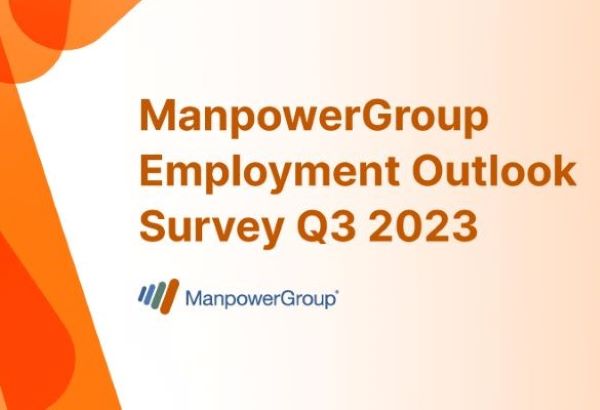Fill the form below to stay updated on important industry insights from ManpowerGroup
Pre-Skilling: Preparing the Workforce You Will Need in 2025 and Beyond
![]() By Lizzie Allen
By Lizzie Allen
When I read the latest ManpowerGroup Employment Outlook Survey that 79% of the Australian organisations surveyed are still struggling to find the talent they need, I wasn’t surprised. The phrase “skills shortage” had been ubiquitous in the talent market for quite some time.
Many organisations will cite the impact the last few years have had; with fewer opportunities to train and upskill, combined with greater financial strain on organisations and workers, it’s true that there has been a greater focus on fulfilling immediate organisational needs rather than preparing for the future.
And yet, in hindsight, the talent shortage was a long time coming. While there are plenty of other great articles out there about impacts of stagnating wage growth, brain drain, and access to university-level education, one question has stuck with me:
Why is it that hiring based on a person’s experience and qualifications is the norm, and upskilling is only considered to be a premium perk offered only by the most progressive companies?
I think it has to do with how organisations approach training as a value add-on for employees rather than a method of future-proofing their workforce. Providing upskilling opportunities is a fantastic way to increase staff retention; when employees are given the tools to train towards their career ambitions, they become much more invested in the companies they work for. This isn’t a phenomenon exclusive to the young faces that are fresh-out-of-uni either. Nowadays, there is a greater understanding that “lifelong learners” are some of the most valuable members of any team because of their willingness to learn regardless of their experience or age.
Unfortunately, most organisations are so time-poor, and their needs so immediate, that there is (seemingly) never an opportunity to invest in the development of their own employees.
For our workforce to be prepared for the unknown jobs and challenges of tomorrow, there needs to be a significant change in attitude amongst business leaders. Upskilling talent, while still useful to meet immediate business needs, is not enough on its own to prepare for the inevitable technological advances and economical challenges the next few years will bring.
I believe the answer lies in “pre-skilling”, where organisations provide pre-emptive, relevant training aligned to their workforce need, that fosters lifelong learners and develops their workers’ readiness for future challenges. Pre-skilling doesn’t have to relate to the field an employee is currently employed in – instead, these programs act as a way for employees to learn about fields of interest that may be outside their area of expertise, or about new technologies that are only beginning to emerge.
As part of my consultancy work as General Manager of Right Management, I’ve witnessed several advanced organisations pre-skilling with great success. While the world is quickly coming to terms with the capabilities and ethical questions posed by using AI, these organisations are already taking advantage of its benefits by being in a first-mover market position.
While it may be impossible to predict and prepare for the next big paradigm shift, I can guarantee you that there will be dozens more to come in our lifetime. The challenge for businesses in the years to come is learning how to be as interested, curious, and open-minded to change as their employees.
Explore other offerings
.jpeg?width=523&height=349&name=TS_consulting_greenwings_RGB(1).jpeg)
Right Management
Right Management is our global talent management offering for outplacement, career management and leader development solutions.

ManpowerGroup Employment Outlook Survey (MEOS)
Strong Labour Markets Expected to Continue in Q3 2023 Australian IT Sector Records Strongest Hiring Intention Across the Globe.
